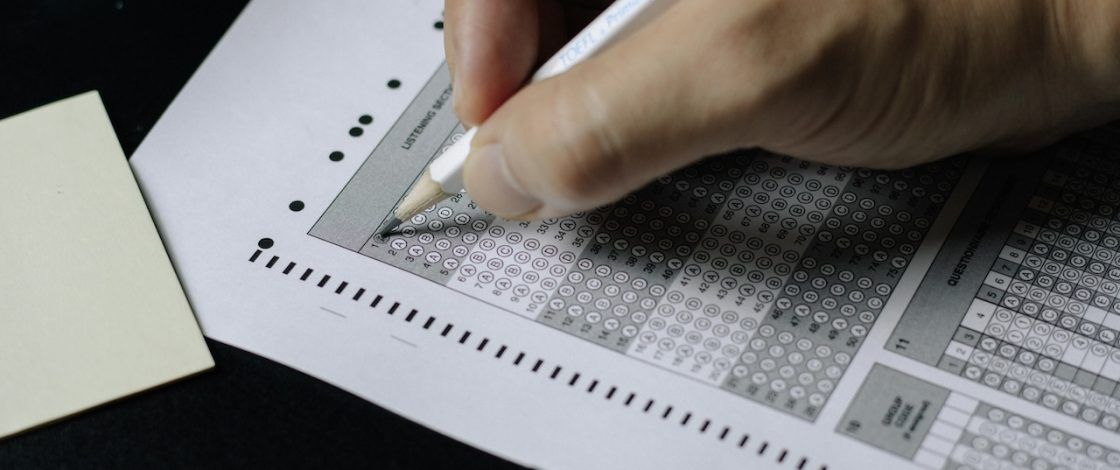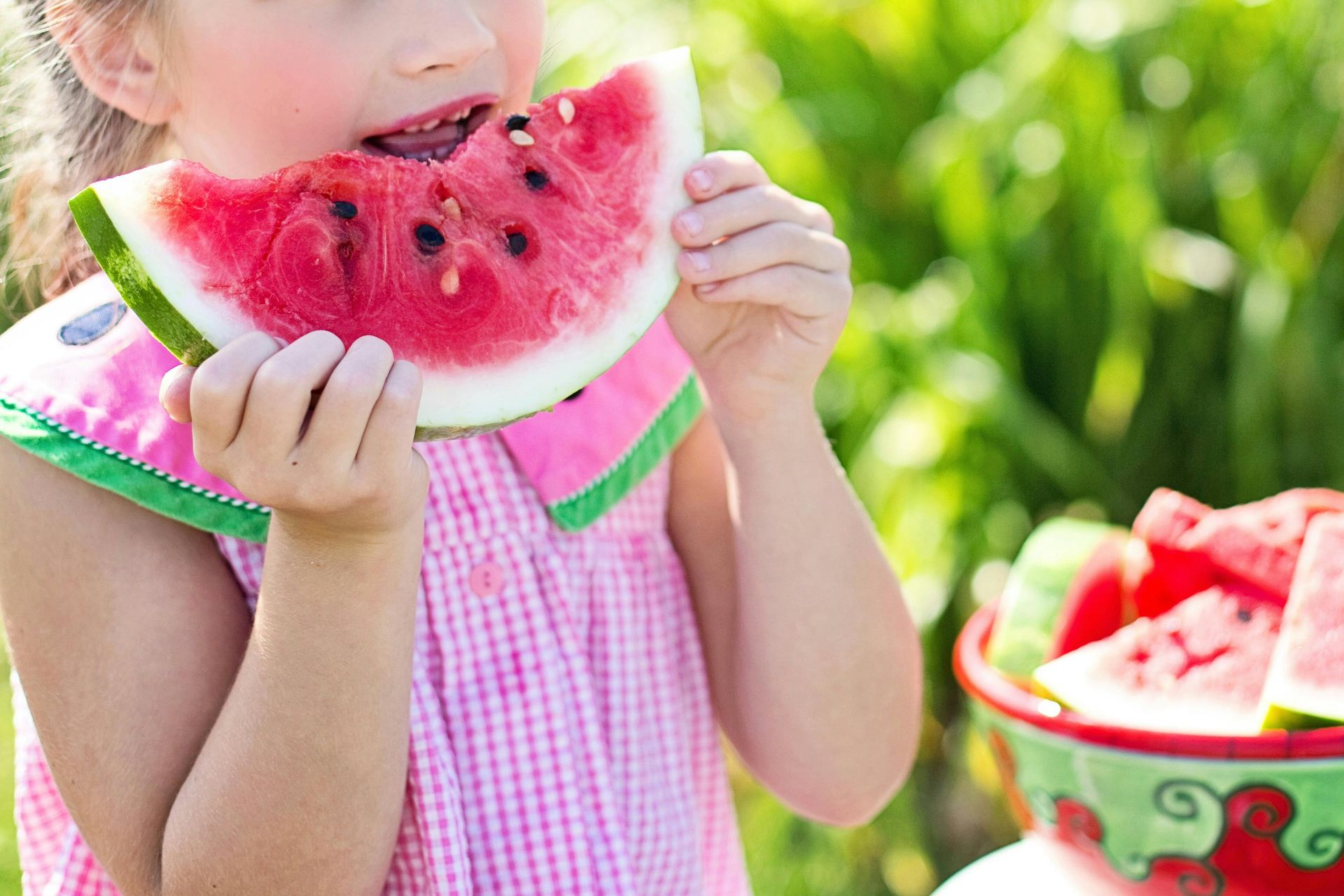BLOG

When people become interested in the process of psychological assessment and begin to look for practices that can offer that service, pricing can vary widely. A consumer, particularly a first-time consumer of such services, can be pretty overwhelmed and confused by the pricing of such evaluations. We often say “people don’t know what they don’t know” when seeking such a specialized service. It can be particularly frustrating when people pay thousands of dollars to be left with a very lengthy document that they have trouble understanding and no clear plan for moving forward. At our practice, Texas Psychology & Assessment Center , we often have people seek our services to help interpret another psychologist’s lengthy report with pages of words and tables leaving them asking, “What does this really say about me/my child, and where do I go from here?” This should not be the result of a process that costs so much in both dollars and in time as well. Read on for an explanation of what to expect from a comprehensive psychological assessment, the reasons for the cost of a thorough assessment, and what questions you can ask to help you be a more informed consumer. Why Do Psychological Assessments Have Such a High Price Tag? Cost of Materials: Why Are They So Expensive? The tests that are administered are purchased from publishers that spend years developing, standardizing, validating, and establishing the reliability of the tests. In other words, it takes a lot of time and money to ensure that the test measures what it says it measures and that it does so in a valid way. So, as such, the cost of these materials reflects the research and development of the tests themselves, not just the pieces of paper that the examiner and subject write on. For a comprehensive evaluation, approximately $350 to $700 is required in materials alone, and this cost has to be reflected in the pricing as well. The Psychologist’s Time: More Than Just Face-to-Face Hours But we only spent 8 hours together, why is it so expensive? For every psychological assessment that is completed, the majority of the hours spent by the psychologist is formulating the diagnostic picture and writing the report. Our team has estimated that for every hour spent with the client, 2 to 3 hours are spent behind the scenes on scoring, interpreting, writing the report, formulating the feedback, and providing follow up recommendations/care. You are paying for not only the time but also the expertise of the psychologist with whom you are working. This often includes the psychologist collaborating behind the scenes with our team of psychologists on the results as well, to ensure that each individual gets the most thorough assessment and most thoughtful, practical, and individualized recommendations possible. What does a comprehensive psychological assessment entail? Step 1: Thorough Diagnostic Interview Including historical information as well as detailed information on the current status and difficulties of the patient Step 2: Developing a Collaborative Assessment Plan This identifies the areas of focus and how they will be assessed. Our practice conducts evaluations on children, adolescents, and adults, and typically, people seeking our services are having difficulty with school or work to the degree that they will likely require reasonable accommodations to be successful. Because of this, we typically assess areas like intellectual functioning, academics, attention/executive functioning, and social/emotional functioning to inform what they need to be successful, not just in school/work but also ways that they can better themselves in other areas of their lives. It is also important that (with the client’s consent), additional information is gathered from important people who are able to observe the client in their daily lives. This can include parents, teachers/professors, significant others in the case of adults, therapists, and psychiatrists involved in their care. For children, school-based observations are often included as part of the process to best inform the assessment as well. Step 3: Testing Sessions Next we collaborate on the plan for the testing day or days. The typical amount of time spent directly with the client on working on testing activities is 6 to 8 hours unless the testing is focused on answering a specific question in an adult (such as focused/targeted ADHD or autism testing for self-discovery purposes – this may be completed in as few as 3 to 4 hours). Testing can be divided into multiple sessions if desired, but there are benefits and drawbacks to either approach. Step 4: Post-Testing Analysis and Report Writing Your work with us is just about completed but OUR work is really just beginning – what comes next is scoring the quantitative measures, consolidating all the data into tables/charts, and interpreting what it all means. Not just what does it mean diagnostically but what does it mean to you, in your daily life. Recommendations are tailor made so that the information is not just that—information – but can be readily applied to daily life in the form of resources that will help the client learn more about any potential diagnoses or areas in which they may improve and actionable steps to improve daily life. Recommendations are comprehensive in that they include not just ways for the client to better themselves, but also supportive steps to be taken by parents/significant others, teachers, therapists, and other providers who are integral to the client’s path in moving forward. The remainder of the time spent to conclude the evaluation entails the following: Writing the report often takes several hours itself – the focus is on making a document that is highly readable, digestible to multiple audiences, and can be helpful to the client as well as schools/workplaces or other providers who work with the client on their goals (therapists, psychiatrists, coaches). Step 5: Feedback Meetings and Follow-Up Care Feedback meetings are critical – this is the opportunity for the psychologist and the client to discuss the testing results and what they mean to their life. This is a time for the psychologist to relay the findings through a conversation to the client, and allows time for the client to reflect and ask questions about the results. Best practice for psychological care is that feedback is also provided to minor clients in addition to their parents/caregivers. Follow up care – oftentimes after the report and feedback are shared, clients will have follow up questions and we are happy to provide support in that way via email or additional conversations when needed. What Questions Should You Ask When Choosing a Psychologist? Psychological assessment, when done well and in accordance to the highest standards and ethics of the practice of psychology, can be life changing. It is an investment in time and care, utilizing the expertise of thousands of hours of training and education. It is also not something that can be easily “redone” if not done well the first time – there are standards for the length of time between assessments and not duplicating or readministering the same assessment instruments within a year from the first administration, so selecting the practice and psychologist to conduct the testing is something to be carefully considered. When you are deciding who to entrust this process to, it’s important to consider the following: Who Will Conduct the Testing? Does the psychologist work with you themselves or do you complete the testing activities with a tech or someone with less training? What is the volume of testing clients the provider sees per week? You will have a different experience from a psychologist who sees one to two testing clients per week vs one testing client per day. Oftentimes higher volume practices utilize techs and students to do the actual testing, write the report, and generate the recommendations with the psychologist only offering a review of those findings. The psychologist in this case may spend less than hour with the person being evaluated if that person is a child or student not involved in the initial interview. What does the testing process entail? Is the report written by the psychologist and is it tailored to you, or does the psychologist cut and paste the various template interpretative reports that the scoring software generates? Will the psychologist reach out to people involved in your life (therapists, psychiatrists, teachers) to provide a more informed analysis of your areas of strengths/challenges? What Is the Feedback Process? Is this a sit-down meeting, and is it included in the pricing of the evaluation? While it is not consistent with the professional ethics outlined for the practice of psychology, it does happen that practices charge additional fees to sit down and discuss the assessment results after sending a report. How Many Clients Does the Provider See Weekly? You will have a different experience from a psychologist who sees one to two testing clients per week vs one testing client per day. Oftentimes higher volume practices utilize techs and students to do the actual testing, write the report, and generate the recommendations with the psychologist only offering a review of those findings. The psychologist in this case may spend less than hour with the person being evaluated if that person is a child or student not involved in the initial interview. Is feedback provided to your child or teenager as well? An individually tailored feedback meetings to the child or teenager is critical to the process that a quality psychological assessment provides – self-understanding, awareness of strengths, and giving a name to a set of challenges that is often experienced in the daily lives of our clients. It is standard operating procedures in our practice that every child or teen receive their own individual feedback session with the psychologist that they worked with during their testing to “close the loop” so to speak on the evaluation process. They receive an overview of the findings in developmentally-appropriate language, are provided with a handout or a letter that is written individually to and for them to reference back in the weeks and months to come. I have had parents contact me years after the fact to tell me how often that letter or document was referenced by their child, and how powerful and helpful it was for the family and the care team of the child to have a common language around strengths and challenges. Why a High-Quality Psychological Assessment Is Worth the Investment Psychological assessments are not just about obtaining a report; they are about gaining a deep understanding of oneself or a loved one and creating a roadmap for future success. A well-conducted assessment provides: Clarity and Direction: Clients gain insights into their strengths and challenges, helping them move forward with confidence. Tailored Recommendations: Actionable steps are designed specifically for the client, addressing their unique needs and goals. Long-Term Benefits: The insights gained from an assessment can lead to meaningful improvements in personal, academic, or professional life. Holistic Support: The recommendations often include strategies for parents, teachers, and other care providers, ensuring a strong support network. Investing in a high-quality assessment means trusting experts who will dedicate the time, care, and expertise to deliver actionable results that make a real difference. Cutting corners or selecting providers without thorough vetting could lead to incomplete or unclear results, which may ultimately require more time and money to correct. Conclusion: Making an Informed Choice In sum, the process of a thorough, comprehensive, collaborative and therapeutically-driven assessment is very complex and involves hours of work behind the scenes. The cost reflects not just an end product (the report) but the process of helping a person better understand themselves and where to go from there to promote their optimal development. It is an investment that is worthy of careful selection and vetting of the persons who will be providing that care as well as their process and standards of care to maximize the intangible returns on that investment.

School has just ended for your kiddo and while they’re excited to soak up the sun, you’re wondering how you can best support them for these next few months! During the school year, your child has been engaged in brain stimulating activities, surrounded by their friends, and had access to positive adult role models. Especially for children and adolescents who thrive on having a set schedule for the day, many kiddos can be severely impacted by the transition to summer break. Here are some considerations for the summer as they transition out of their schools: 1. Having little to no routine : Data overwhelmingly indicates an association between having routines and positive developmental outcomes within children and teens. These can include positive effects across the board (e.g., cognition, self-regulation, social-emotional health, and physical health). Regardless of individual differences, routines provide feelings of safety, control, and comfort as your child knows what will happen next. 2. Reduced access to services: Children and teens are in schools five days a week with access to a multitude of professionals and services. Outside of the home, school is the number one place where students can receive necessary services designed to identify and treat social and emotional well-being issues. 3. Isolation from friends : Many students do not have a way to access their peers during the summer months if they are not yet able to drive, do not have access to transportation, or live far away from peers their age. Research has shown that social deprivation can have detrimental effects on a child’s brain development, self-concept, and mental health. These considerations highlight just how protective school can be for your student’s mental health. Without the supports from the school, it is incredibly important to keep an eye out for any signs of decline in your kiddo’s mental health! Here are some strategies to be proactive in supporting your young ones over the summer: Establish routines with your children to add some stability to their summer. A checklist can be a helpful tool to remind children and teens of daily tasks and activities. Here you can find a Summer Routine Checklist for your teens that can also be easily modified to suit the needs of a younger child. Encourage them to engage in their hobbies. This may also be a great time to explore new interests with your children that are mentally and/or physically stimulating! Help facilitate opportunities for social interactions to the best of your ability. These can include playdates or organized activities such as sports, camps, and community events. Think about setting limits on your child’s screen time. Children and adolescents can experience a multitude of negative consequences in response to increased time in front of a screen, especially over the summer. Sleep problems, decreased socialization with family and peers, mood difficulties, and poor self-image are just some of the negative outcomes of excessive screen time. More information on screen time for children can be found here . Some children and teens may experience a more drastic change in behavior that may warrant seeking out services from a mental health professional. Here are some signs and symptoms top look out for: For younger children: Frequent tantrums or irritability Often fearful Complain of frequent stomachaches, headaches, or body aches with no corresponding medical concern Are in constant motion and cannot sit quietly Sleeping too much or too little Frequent nightmares Unusual fatigue Difficulty making or maintaining friendships Repeated actions or checking things many times for fear that something bad may happen For older children: Feeling very sad or withdrawn for two or more weeks Seriously trying to harm or kill themselves, or making plans to do so Sudden overwhelming fear for no reason, sometimes with a racing heart or fast breathing Involved in multiple fights using a weapon, or wanting to badly hurt others Severe, out-of-control behavior that can hurt themselves or others Not eating, throwing up or using laxatives to make themselves lose weight Intensive worries or fears that get in the way of daily activities Extreme difficulty in concentrating or staying still that puts them in physical danger or causes school failure Repeated use of drugs or alcohol Severe mood swings that cause problems in relationships Drastic changes in their behavior or personality Sources Summer is Almost Here! Tips for Parents to Support Their Child’s Mental Health Over Break | CommUnity Crisis Services. (n.d.). Retrieved June 24, 2024, from https://builtbycommunity.org/summerbreak/ Why does summer break impact student mental health? | Pearson Assessments US. (2023, July 19). Www.pearsonassessments.com. https://www.pearsonassessments.com/professional-assessments/blog-webinars/blog/2023/07/why-does-summer-break-impact-student-mental-health.html Boylan, K. (2019). Summer can be hard on kids with mental health problems. Journal of the Canadian Academy of Child and Adolescent Psychiatry = Journal de l’Academie Canadienne de Psychiatrie de l’Enfant et de L’adolescent, 28(2), 44. https://www.ncbi.nlm.nih.gov/pmc/articles/PMC6691798/ Mayo Clinic. (2020, February 26). Mental illness in children: Know the signs. Mayo Clinic. https://www.mayoclinic.org/healthy-lifestyle/childrens-health/in-depth/mental-illness-in-children/art-20046577 Selman, S. B., & Dilworth‐Bart, J. E. (2023). Routines and child development: A systematic review. Journal of Family Theory and Review, 1(1). https://doi.org/10.1111/jftr.12549 11 Simple Signs a Child May Have a Psychiatric Disorder. (n.d.). Child Mind Institute. https://childmind.org/article/11-simple-signs-a-child-may-have-a-psychiatric-disorder/ Orben, A., Tomova, L., & Blakemore, S.-J. (2020). The Effects of Social Deprivation on Adolescent Development and Mental Health. The Lancet Child & Adolescent Health, 4(8), 634–640. https://doi.org/10.1016/s2352-4642(20)30186-3 National Institute of Mental Health. (2021). Children and Mental Health: Is This Just a Stage? Www.nimh.nih.gov. https://www.nimh.nih.gov/health/publications/children-and-mental-health Reeves, S., & Unni, L. (2024, June 3). Summer Break Self-Care [Review of Summer Break Self-Care]. Texas Psychology & Assessment Center. https://www.texaspsychologycenter.com/summer-break-self-care AACAP. (2020, February). Screen Time and Children. Aacap.org; American Academy of Child and Adolescent Psychiatry. https://www.aacap.org/AACAP/Families_and_Youth/Facts_for_Families/FFF-Guide/Children-And-Watching-TV-054.aspx

It’s officially summertime-- the temps are high, school is out, and the kids are home! While this fun period can serve as a nice break from school, it’s important for kids to practice self-care and instill a routine for themselves to upkeep their mental health. As a parent or caretaker, this may sound stressful and overwhelming, but we’ve got you covered with some helpful information, tips, and resources! Self-care What if I told you that self-care isn’t just things that you enjoy? It can also mean accomplishing necessary to-do’s that you might be putting off or avoiding. Practicing self-care doesn’t need to be an elaborate activity, it can be something as simple as setting a limit with how late you let yourself stay up and sleep in or having regular, balanced meals. The key is to pay attention to how choices in your life make you feel and prioritize those choices. For example, when I say I’m too busy for exercise, I find that I feel more sluggish, I don’t sleep well, and I usually don’t make the best choices in eating habits. Doing the basics to take care of yourself can go a long way for your mental health. Good Sleep Hygiene Good sleep hygiene can go a long way towards helping your kiddo get enough shuteye. Here is a breakdown of rules you should follow to ensure your child has good sleep hygiene: Environment – it’s important to have the right type of environment for quality sleep. Make sure your child’s bedroom is quiet, cool, and dark. Keeping boundaries and “zones” for certain activities in their room is also imperative to getting good sleep as it allows their brain to connect specific areas with those activities. For example, keeping their desk for work, a comfy lounge chair for relaxation, and their bed for sleep can help keep thoughts and stress about one activity away from the other. Activities – eliminating screen time and electronic use after lights out is a major sleep hygiene rule. Parents should try to steer their teens toward reading, drawing, or anything that doesn’t require charging. Consistency – while bedtimes and wake up times may be later, there’s nothing to say they can’t be consistent. According to Shcheeburg, “Rise times should stay consistently within a 2-3 hour range.” Keeping Routines Why is routine so important to teens? Adolescence brings with it intense physical, emotional, and social change. When so much of a teen’s life is in flux, the predictability of everyday routines is grounding. While a lack of routine could seem like freedom, research suggests that stable routines support teens’ overall mental health and wellbeing, whereas a lack of one can make them more vulnerable. A recent study from the University of Georgia found that teens with regular mealtimes, bedtimes, and after school schedules “reported less alcohol use, greater self-control and emotional wellbeing, and higher rates of college enrollment in young adulthood.” Even more impressive: consistent routines correlated with lower levels of the stress hormone epinephrine! A helpful way to instill these routines over the summer is to create a checklist of ideas. Here is an example of a fun way to get your child to schedule out their days:

